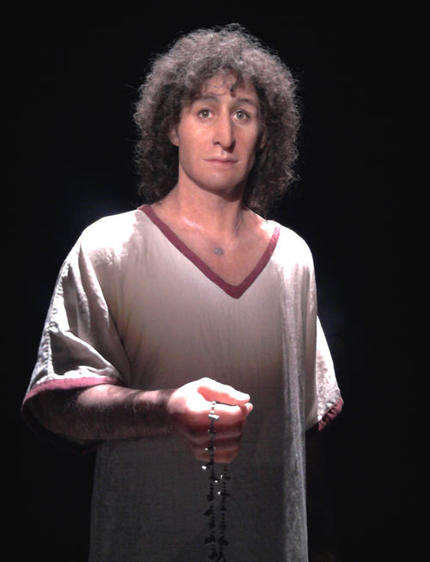LAU scientist authors study revealing European DNA found in ancient Phoenician man
Researchers manage to analyze and obtain genetic print of an individual buried in Punic grave.
Newly-released findings of a study authored by professor of genetics at LAU Pierre A. Zalloua and professor of biological anthropology Lisa Matisoo-Smith of the University of Otago, New Zealand, trace the ancestry of the Phoenicians to the North Mediterranean Coast. The significance of this study, based on an analysis of the first DNA from Phoenicians, is multiple: it establishes their identity and their origins, and provides the earliest evidence of a European mitochondrial haplogroup in North Africa.
“This is the first time we could analyze and obtain the genetic print of an individual buried in a Punic grave,” explains Zalloua. The result links this individual to a group of Southern Europeans.
Little is known about the Phoenicians, as most accounts of these people come from the likely biased chronicles of their Greek and Roman rivals. While their impact on Western culture is widely appreciated, little is known about their origins. Commonly thought to have originated geographically in contemporary Lebanon, this study points to earlier roots which shed new light on their importance and their culture in ancient times.
This scientific discovery reveals that population movement from South Western Europe into North Africa already existed at the time of the Phoenician settlements in Carthage. “The evidence points out how this individual adopted Punic culture or was born into it,” says Zalloua.
One of the most fascinating aspects of the study, according to the scientist, was the ability to analyze the DNA of an individual who had been excavated years prior. The grave was discovered in 1994 on Byrsa hill, near Carthage, Tunisia. The tomb dates to the late 6th century BCE where the remains of the ‘young man of Byrsa’ were found. Zalloua goes on to explain that this finding is part of a wider study which involves collecting Phoenician remains from different sites for analysis. Once the study is completed, it will provide a more comprehensive picture of Phoenician heritage.
There were numerous challenges involved in conducting the research. “It is always difficult to obtain these samples, but in this case the Tunisian partners were extremely generous,” says Zalloua. In addition, working on such projects is very expensive and funding is hard to come by.
An accomplished geneticist, Zalloua is a leading authority on genetics of Middle Eastern populations whose extensive research has established a link between Middle Eastern and Mediterranean populations by tracing patterns in human migration through DNA analyses.
While Zalloua and Matisoo-Smith led the study, the scientific work was conducted together with a distinguished number of scholars. Anna L. Gosling, James Boocock, Olga Kardailsky, Yara Kurumilian, Sihem Roudesli-Chebbi, Leila Badre, Jean-Paul Morel and Leila Ladjimi Sebai participated in these findings.
More
Latest Stories
- Into the Psychology of Justice
- Alumnus Zak Kassas on Navigation, Spoofing and the Future of GPS
- Hearing Between the Lines
- LAU Hematology Conference 2025: Advancing Science Through Interdisciplinary Exchange
- Dr. Chaouki T. Abdallah Invested as LAU’s 10th President
- LAU Guides Its Students Through the Code of Conduct
- Innovative Procedure at LAU Medical Center–Rizk Hospital Signals Hope for a Patient With a Congenital Disease
- LAU’s Inaugural PodChat Session Addresses AI Detection in the Classroom


